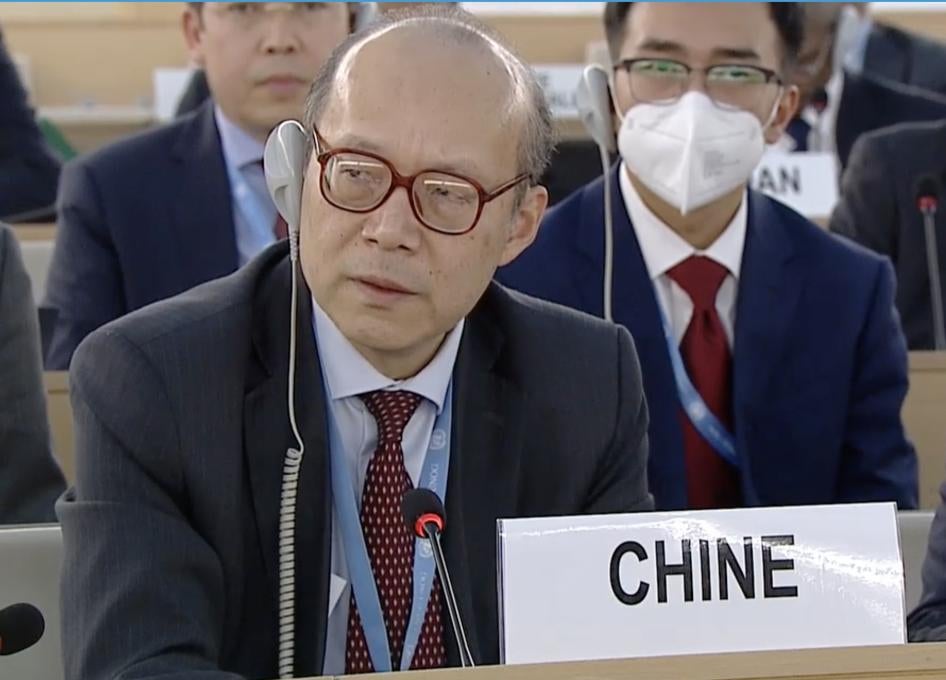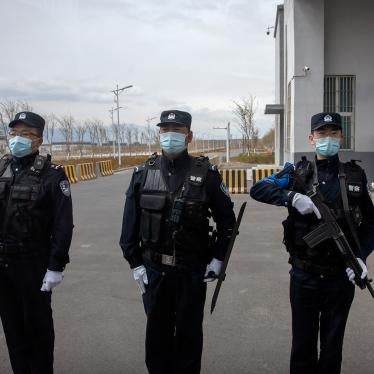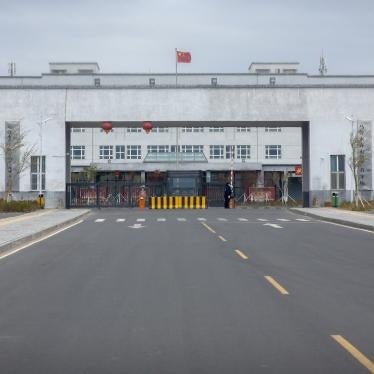Last week’s narrow vote at the United Nations Human Rights Council concerning China’s rights violations highlighted the growing number of governments willing to take a principled stance and call out the Chinese government on its appalling record.
By a dramatic vote of 19 to 17, the Council decided not to hold a debate on a report by the former UN high commissioner for human rights, which had laid bare the scale and scope of Chinese government abuses targeting Uyghurs and other Muslim communities in the Xinjiang region. Ukraine subsequently expressed its support, narrowing the margin to 19 to 18.
While technically a win for China, Beijing has no cause for complacency when, despite the immense political pressure it brought to bear, it escaped Council scrutiny by a razor-thin margin.
The decision to debate China’s violations in Xinjiang had support from states in all five UN regions, while others tied themselves in knots trying to explain their reluctance to even discuss the issue. Mexico and Argentina, for example, expressed preference for dialogue – while failing to support a decision calling for dialogue, and Indonesia announced it could not close its eyes to the plight of Uyghur Muslims – before proceeding to do exactly that.
While Turkey, as a member of the Organisation of Islamic Cooperation (OIC), supported the decision, Pakistan’s moral authority as OIC coordinator collapsed with its vote to ignore the widespread and systematic abuses targeting Muslims for practicing Islam.
Strikingly, not one state suggested it believed Beijing’s flimsy narrative that it was providing “vocational training” to those in Xinjiang facing mass arbitrary detention, torture, and related violations, nor contested the high commissioner’s conclusion that the extent of abuses directed against Xinjiang’s Muslims may constitute crimes against humanity. Even the Chinese government did not deny the policies and documents setting out a campaign of religious profiling that informed the report.
Beijing tried hard to suppress publication of the high commissioner’s report. It failed. Now, in trying to prevent discussion, it has only brought more attention to the report, and further demonstrated its intolerance of genuine dialogue. And the narrow margin has broken the myth that China is beyond the reach of international scrutiny.
These realities should hearten governments seeking to hold Beijing to the same international standards as other countries. Pressing ahead to bring Chinese government abuses onto the Human Rights Council agenda is no easy task. But recent developments show that it can – and should – be done.










